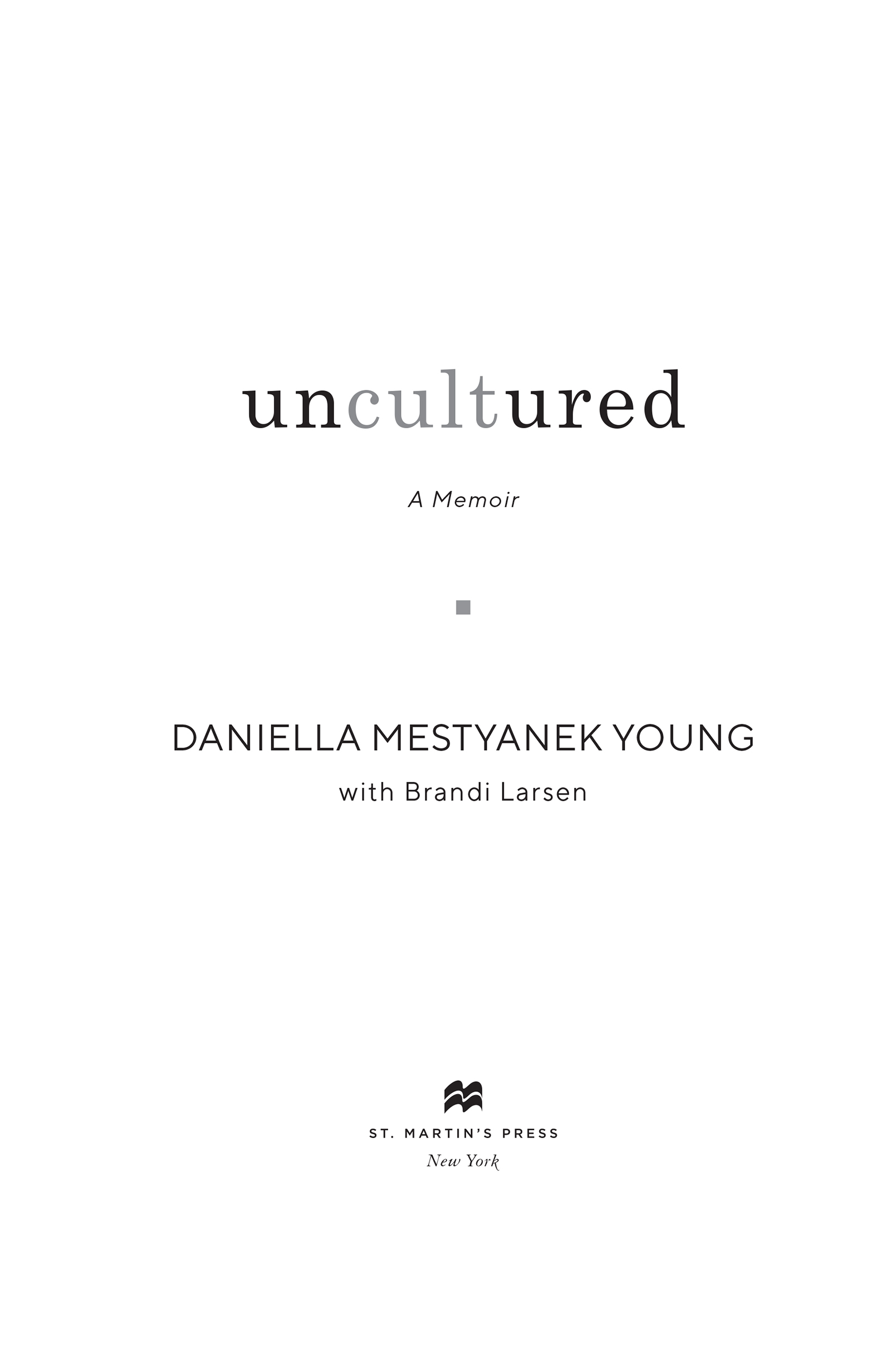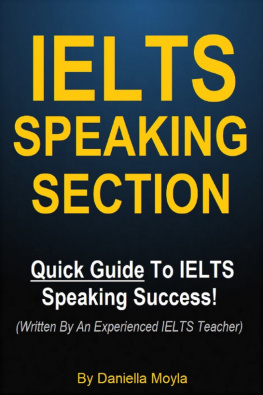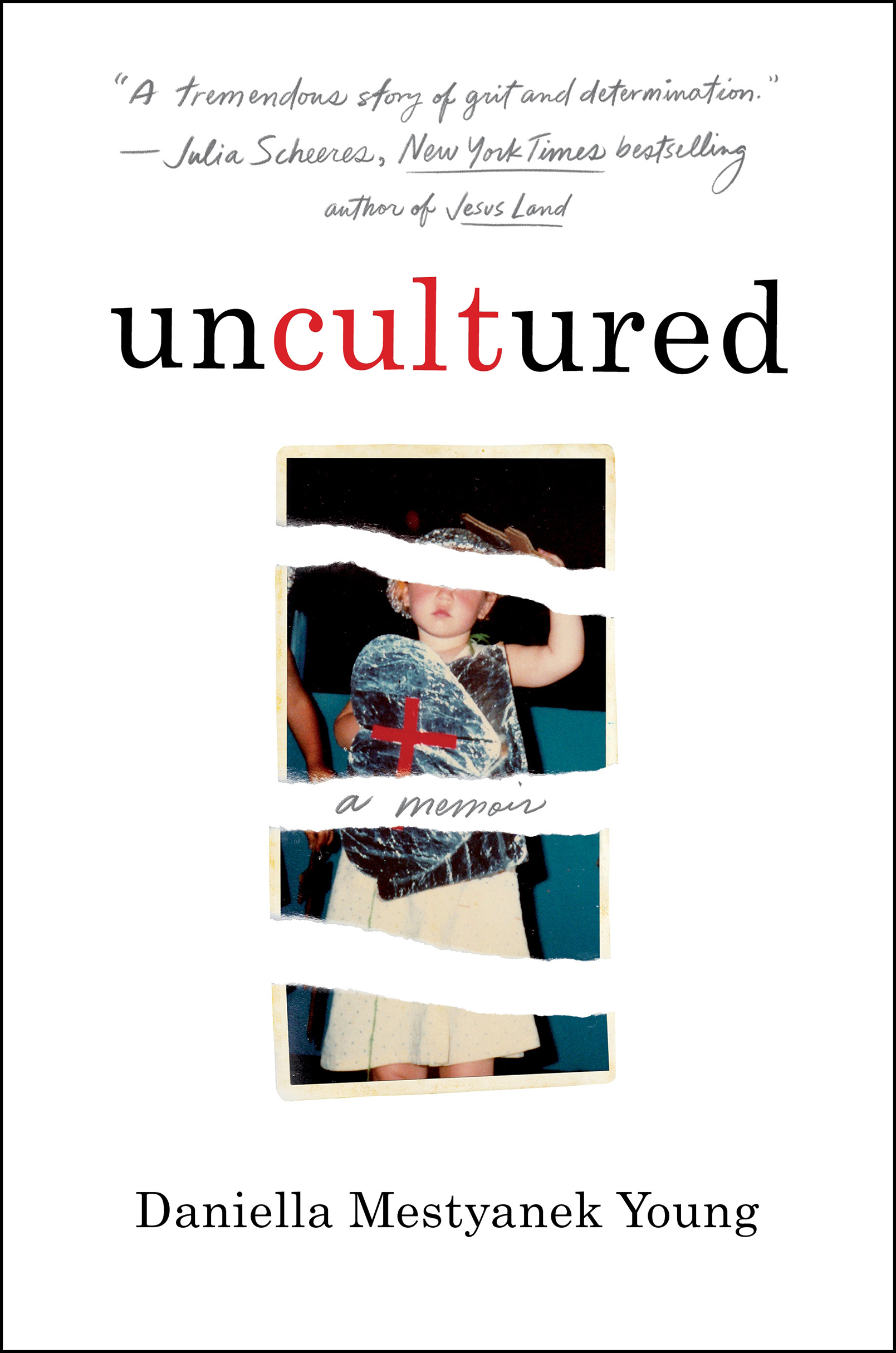Contents
Guide
Pagebreaks of the print version

The author and publisher have provided this e-book to you for your personal use only. You may not make this e-book publicly available in any way. Copyright infringement is against the law. If you believe the copy of this e-book you are reading infringes on the authors copyright, please notify the publisher at: us.macmillanusa.com/piracy.
To Mom: thank you for teaching me how to read
To all my teachers, in schools and in life: thank you for teaching me how to think
The first rule of cults is you are never in a cult.
This is a true story of my lived experiences. On these pages, I share what I know about the groups Ive joined and the ones Ive been born into, and how I recognized the difference between culture and cults. However, some names and details have been changed.
You belong to us.
I cant hear the exact words being yelled, but the words dont matter. I know what the tone means:
We own you.
My hands reach toward the sky, knuckles white as I struggle to maintain my grasp on the duffel bag stuffed with pieces of gear I dont know how to use. My muscles scream as I force my arms to keep the bag aloft.
The voices grow louder. I dont know how many. I can see the fear and confusion on the faces of the fellow soon-to-be-soldiers around me, but I am not afraid. If the people shouting were going to hit me, they would have by now. They want a reaction, so I know not to give them one. Keep your head down. Dont make eye contact. Do what they say.
I know how to tune out, go outside my body. I know the trick of focusing on a meaningless detail. All I see is the drab-green bag in someone elses hands. I allow it to fill my vision, my mind. I make it the centerpiece of my world.
The yelling started the moment the bus full of recruits came to a stop at Fort Jackson, South Carolina. Everyone in our group shot to their feet, shuffling down the aisle, bodies colliding with one another, held vertical by the mass of people pressing up against them. We had no idea why we were in trouble, what we had done to earn this verbal beating. But we all had the same instinctwed do anything to make it stop.
We fly into formation, standing shoulder to shoulder, staring straight ahead, unblinking, not daring to move even when drops of sweat slide from the base of our necks all the way down our backs and into the cracks of our asses. We clench tighter and try not to shiver. Dont move. Dont be the one who stands out. Dont become the failing one out of many.
The yells turn into words: GRAB YOUR DUFFEL BAG! LIFT IT ABOVE YOUR HEAD AS HIGH AS YOU CAN!
I know what is happening. I read about it online after signing my paperwork. This is how they shock your system. Well be here for at least an hour, maybe two, straining our arms, dropping our gear, doing push-ups, jumping to our feet, hoisting the fifty-pound bags into the air. Well grunt and gasp and sweat and cry.
They scream and we push. We force ourselves past the pain, nausea, and fear. We ignore the little voice saying, Stop, this is crazy.
This is easy for me. Its a switch I can turn on and off. That little voice, silenced. My gut, ignored.
Soon, I will no longer exist. There will only be the group. There will be only army.
Most of these recruits have never left home. Seventeen is the average age of this summers class; they could have been camp counselors instead of soldiers. They will finish basic training and then head back for their senior year of high school before reporting back full-time.
They are scared, but I am not. They are kids missing their mommies, yearning to go home. But I dont have a home, and my mother could never protect me from anything.
I spent my life playing at battle drills, getting ready for what to do when the Antichrists soldiers showed up. I cant count the hours I spent as a child standing in lines, eating mass-produced food that tasted like cardboard, never quite getting enough to feel full. I was always next to a handler, sleeping and waking, always watched, always commanded. My mind couldnt wander, not even an inch. I know how to follow orders, how not to ask questions.
I was born a soldier.
I stand staring at the big blue sky, straining under the weight of my equipment, trying to block out the drill sergeants shouts. I am suddenly nine years old again, standing on the Brazilian shore, eyes glued to the horizon, imagining I can see the shores of Angola across the Atlantic. As the waves wash the sand from my toes, I wonder what would happen if I started swimming, if I swam until I couldnt anymore. But there is a big white van parked a few yards up the shore, waiting to return us to the gray walls of the commune, the whitewash of the childrens dorms, the home of my loneliness, hunger, and fear.
HIGHER! a voice yells. GET YOUR BAG IN THE AIR! The blue sky is a promise and a lie with no real portent of freedom for me, not since I signed on that dotted line. I let out a gasp, almost releasing my grip on the duffel and, with it, my tenuous hold in the group, as a sharp thought pierces my consciousness:
Did I just join another cult?
Petropolis, Brazil, 1993
From the end of the spanking line, I could see the paddle in Uncle Zephaniahs hand. The oldest kids, the twelve- and thirteen-year-olds, stood at the front. At five, I was the youngest and would take my punishment last. This was the worstnot only did you have the longest wait, but you endured it alone. Just you, an adult, and a paddle.
We stood single file in the center of our dorm, a room full of rough-hewn bunk beds stacked three levels high, yellowed sheets covering thin pieces of foam pretending to be mattresses, bare lightbulbs hanging from the ceiling. I felt the familiar fear creep over me. Dont make a sound. Dont look up. Dont let anyone see you shaking.
Then it started. I kept my eyes on the floor but I could still hear the smacking sound so loud, the thick, unbending slab of wood striking the skin of bare bottoms. We all knew not to cry because that would earn us more swats, so we kept our pain silent, our whimpers as tiny as possible. The older kids were better at controlling their tears; usually, the crying didnt start until the younger childrens turns.
Suddenly, a high-pitched screech bounced off the tile and filled every crevice. Whos doing that? I wondered. They needed to stop. Somebody needed to make them stop. Everybody knows you arent allowed to cry like that.
The other kids started turning around in line.
Everyone looked at me.
My friend Virginia lifted her finger to her lips, her eyes dire with warning. But I couldnt stop. The sounds burned my throat, hurt my ears. I knew I was in trouble, but I didnt understand why. The injustice of it all bubbled up inside me. This isnt fair, flashed through my mind, a thought that I knew if spoken out loud would earn me an even worse punishment.
Through my sobs, I remembered the fear I felt when I had woken up a few minutes earlier from a sound sleep on my trundle bed. My frizzy, dirty-blond hair had come loose from my braid and I didnt want to be chastised by the Aunties for messiness.
Nap time could be dangerous. All twenty-two of us kids were expected to maintain perfect silence, either sleeping or studying the Prophets words, for the entire two-hour time period, always enforced by an Auntie-in-charge. If someone talked or asked to go pee, or did anything else that wasnt allowed, we all got punished.









